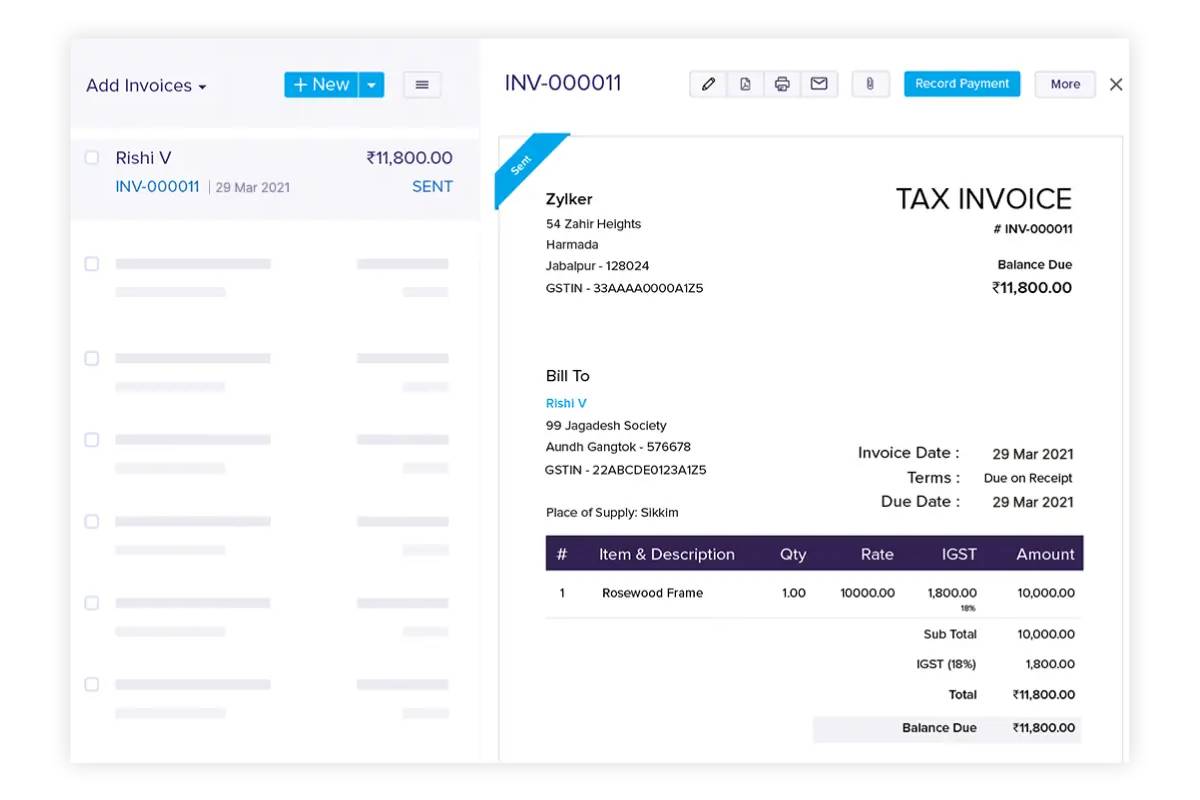
Importance of Accurate Record Keeping
If you’ve ever crammed a year’s worth of receipts into a shoebox the night before your Self Assessment deadline, you’re not alone. Many freelancers and small business owners put off bookkeeping because it feels tedious, time-consuming, or just plain confusing.
But here’s the thing: accurate record keeping isn’t just a tax requirement — it’s a business superpower. It helps you understand your finances, avoid penalties, make informed decisions, and even sleep better at night. Yes, really.
In this guide, we’ll unpack why managing your financial records properly is so important. You’ll learn how good bookkeeping supports HMRC compliance, improves your business health, and saves you time, stress, and money in the long run.
This isn’t about becoming an accountant overnight. It’s about giving yourself the tools to grow with clarity and confidence — and maybe even enjoy the process.
What Does “Accurate Record Keeping” Really Mean?
Let’s start by clarifying what we’re talking about.
It Means Tracking Everything — Consistently
Accurate record keeping involves recording all financial transactions related to your business.
This includes:
- Income (sales, invoices, bank transfers)
- Expenses (subscriptions, equipment, travel)
- Bank statements
- Receipts and invoices (both issued and received)
- Tax returns and HMRC correspondence
- PAYE, VAT, or pension contributions (if applicable)
In simple terms, it’s knowing what came in and what went out and being able to prove it if asked.
Digital or Paper?
You can keep records digitally or in hard copy, but HMRC increasingly expects digital solutions, especially under Making Tax Digital (MTD) rules for VAT and income tax.
Cloud accounting tools like FreeAgent, QuickBooks, and Xero make compliance easier and help reduce human error.
Why Record Keeping Matters (Beyond Just Taxes)

Sure, keeping records helps you fill in your tax return. But there’s so much more to it.
1. It Keeps You HMRC Compliant
HMRC requires self-employed individuals and businesses to keep records for:
- At least 5 years after the January 31 submission deadline for Self Assessment
- At least 6 years for companies under Corporation Tax
If HMRC decides to audit you, you’ll need to show accurate and complete records.
Poor documentation could lead to:
- Fines
- Interest on unpaid tax
- Stressful investigations
Case in point: A freelance photographer was investigated after inconsistencies in reported income. Thanks to neatly categorised digital receipts, the audit ended quickly, with no penalties.
2. It Helps You Claim Every Allowable Expense
You can’t claim what you can’t prove. By recording every legitimate cost — from printer ink to train fares — you reduce your taxable profit and save money.
No receipt? No claim. Keeping real-time records means no forgotten expenses, no scrambling in January, and more cash in your pocket.
3. It Makes Financial Planning Easier
Good records allow you to:
- Track profit and loss
- Identify your busiest and quietest months
- Forecast cash flow
- Spot patterns in your spending
Instead of guessing how your business is doing, you’ll have the numbers to back it up — and make smarter decisions.
Bookkeeping and Tax: The HMRC Connection
What HMRC Expects
HMRC doesn’t expect perfection, but they do expect:
- Clarity
- Honesty
- Timeliness
You’ll need to show income and expenses clearly separated, with supporting evidence.
This includes:
- Invoices (clearly numbered and dated)
- Receipts and bills
- Bank statements
- Details of cash transactions
HMRC loves accuracy, but also consistency. Choose a system and stick with it.
Making Tax Digital (MTD)
MTD is HMRC’s move towards fully digital tax reporting. Right now:
- VAT-registered businesses must keep digital records and use MTD-compatible software
- MTD for Income Tax is expected to roll out for self-employed individuals earning over £50,000 (from April 2026)
If you’re not already using digital tools, now’s the time to start — they’ll soon be mandatory.
How to Keep Accurate Records: Step-by-Step

It’s not about fancy spreadsheets. It’s about routine, organisation, and using the right tools.
Step 1: Separate Your Business and Personal Finances
Open a dedicated business bank account. Mixing personal and business spending is a recipe for confusion and mistakes.
Step 2: Record Income and Expenses Promptly
Log transactions weekly or monthly. Don’t wait until year-end — it’ll be far harder to recall and track.
Use apps or software that sync with your bank account to speed this up.
Step 3: Categorise Everything Clearly
Split your income and expenses into categories:
- Equipment
- Travel
- Marketing
- Software subscriptions
- Client income
This makes it easier to complete your tax return and spot financial trends.
Step 4: Store Your Receipts Safely
Use digital folders, cloud storage, or expense-tracking apps like:
- Dext (formerly Receipt Bank)
- Expensify
- AutoEntry
Take a quick photo of each receipt as you go — then bin the paper.
Step 5: Back Up Your Data
Whether you’re digital or paper-based, always have a backup. Cloud platforms offer version history and secure storage, which paper folders don’t.
Tools to Make Bookkeeping Easier
There’s no one-size-fits-all, but here are some freelancer favourites:
- FreeAgent – built for UK freelancers and integrates with HMRC
- QuickBooks Self-Employed – intuitive interface, mileage tracking
- Xero – great for scaling up and payroll
- Zoho Books – budget-friendly and simple
Tip: Choose a tool that can grow with you. Even if you don’t need invoicing or payroll now, you might in a year.
Real-Life Story: Priya the Web Developer
Priya runs a successful freelance web design business. In her first year, she kept her invoices in email folders and jotted expenses in a notepad. When tax season arrived, she spent 14 hours pulling everything together — and still missed £600 in expenses.
In year two, she started using FreeAgent, logged expenses weekly, and scanned every receipt on her phone. Come January, her tax return took under two hours. She also noticed she was overspending on monthly software she no longer needed.
Her verdict? “I didn’t just get my weekends back — I finally feel like I’m running a business, not just reacting to it.”
Common Mistakes and How to Avoid Them
1. Leaving Everything Until the Last Minute: Set a calendar reminder to update records monthly. Waiting until the tax deadline invites errors.
2. Not Saving Receipts: If HMRC asks for proof and you don’t have it, you may lose the deduction, even if the cost was real.
3. Misclassifying Expenses: Don’t guess. If you’re not sure whether a meal, subscription, or tool is deductible, check HMRC guidance or speak to an accountant.
4. Mixing Business and Personal: Avoid paying for personal groceries on your business card — it creates confusion and looks messy during audits.
5. Ignoring Your Numbers: Bookkeeping isn’t just compliance — it’s a goldmine of insight. Regularly check your income, costs, and profit margins.
Conclusion: Bookkeeping Isn’t Boring — It’s Empowering

Yes, it might seem like admin, but accurate record keeping is one of the best investments you can make in your business. It’s about clarity, confidence, and control.
With clean records, you’ll:
- Save time and stress at tax season
- Keep HMRC happy and compliant
- Claim every allowable expense
- Understand your business inside out
- Plan ahead with real data
Even if numbers aren’t your thing, technology has made it easier than ever. And if it still feels overwhelming? Outsourcing your bookkeeping to a professional could save you more than it costs.


